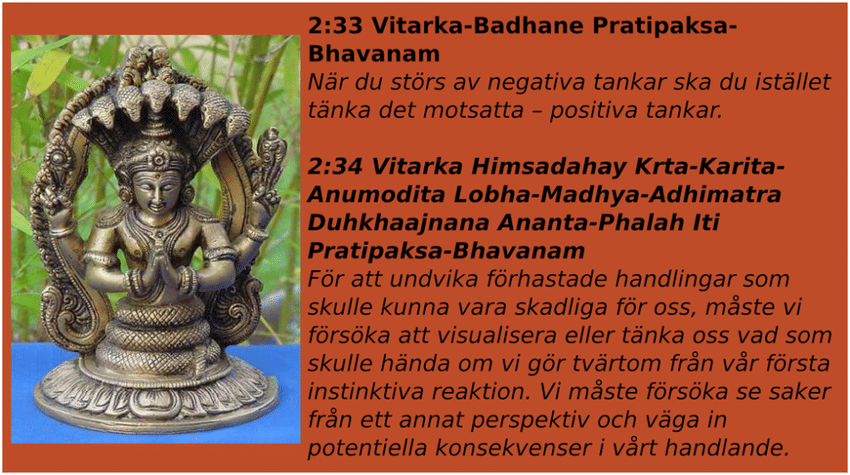Yoga Sutras - Thoughtful words about knowing yourself
Article Outline
▼Summary
▼Unlocking the Power of Yoga: A Journey of Self-Discovery
This article explores the ancient philosophy of yoga, beyond its physical form, and delves into the Yoga Sutras of Patanjali, a foundational text written 2400 years ago. The Yoga Sutras offer a profound understanding of yoga as a path to quieting the mind, finding peace, and gaining self-awareness. By studying these 195 short sentences, or aphorisms, one can learn to navigate life's challenges with greater ease, develop a deeper understanding of themselves, and cultivate a more mindful approach to reacting to difficult situations. Through the lens of the Yoga Sutras, this article discusses practical wisdom for transforming negative thoughts, managing emotions, and finding inner peace, inviting readers to embark on a journey of self-discovery and growth.

When I write the word yoga, many of you probably think of the physical form of exercise - Hatha yoga. However, Hatha yoga is only a small part of yoga and is relatively new compared to the philosophy behind it. Hatha yoga was primarily designed to help people understand and control their body, mind and spirit - themselves - through movement.
One could see Hatha yoga i.e. the physical yoga with all asanas as the tip of the iceberg and classical yoga as all that is not visible on the surface (the geoscientist in me smiles at that simile).
Classical yoga is an amalgamation of several philosophical schools, in which both Hinduism and Buddhism have had great influence. The text often referred to as the foundational text of yoga is the Yoga Sutras of Patanjali, written already about 2400 years ago. The text of Yoga Sutras is one of the earliest descriptions of yoga. It is written in the classical Sanskrit language and in 195 short sentences, called aphorisms, describes yoga as both philosophy and practice. Patanjali's Yoga Sutras have had a huge impact on the world of yoga. It begins by stating what yoga is. Translated into English (from Sanskrit) it would be something like this: "Yoga is the stilling of all movements of thought". If you read on, you will understand that yoga is about reaching a state, or a kind of being, where you have quieted your mind, i.e. where you find peace. The way to that state can be seen as the life of each of us. By studying the Yoga Sutras, one can learn more about oneself, who one really is and how one functions in different situations. Since the Yoga Sutras consist of only small short sentences, they are relatively tricky to understand. Students both past and present have spent years studying together with yogis from all over the world to understand the meaning of the aphorisms.
So why do I choose to write about Yoga Sutras? Partly because they are well thought out, partly because I find them so useful and therefore I want to explain them in as simple a way as possible so that you, the reader, can also take note of and understand them. Instead of sharing useful recipes, I share useful and thoughtful words...
I'll start with my two favorites, which are about trying to look at things that is happening that you might not like from a different perspective.

If you find it difficult to change the negative thoughts to the opposite - think of an environment that makes you feel good, or better still, move to that environment to change the negative thoughts to more positive ones. Take a walk in the woods or go to the seaside, whatever you prefer, it's better than staying in the environment that created the negative mood for you. And if it's impossible to leave the negative environment temporarily - daydream away instead.
If a conflict arises in your life and you feel like just ignoring everything and screaming out loud that you can't take it anymore. Take a step out of your own little world and get some perspective on the situation. Imagine that you are putting yourself in the shoes of the other person and try to see what he/she sees. Think before you act. For example, what would happen if you saw the comedy of the situation and laughed at it instead of screaming outright? What would happen if you did exactly the opposite of what you instinctively thought in the first place? What would happen if you gave the person(s) who made you want to scream outright a hug instead?
Patanjali does not say that you should not react and show emotions or that you should judge yourself for reacting in one way or another in a given situation. He is just reminding you that you are probably the one who suffers the most from the situation. Being angry or bitter at someone/something for a long time drains your energy because the person/situation you reacted to probably doesn't even reflect on what happened or know what you feel. It doesn't affect them at all, it's you who has reacted. And who are we supposed to learn to understand and control in the first place? Exactly, ourselves.
It may seem like a fine line to react consciously in different situations instead of reacting without thinking beforehand. But it does make a difference. Try it for yourself!